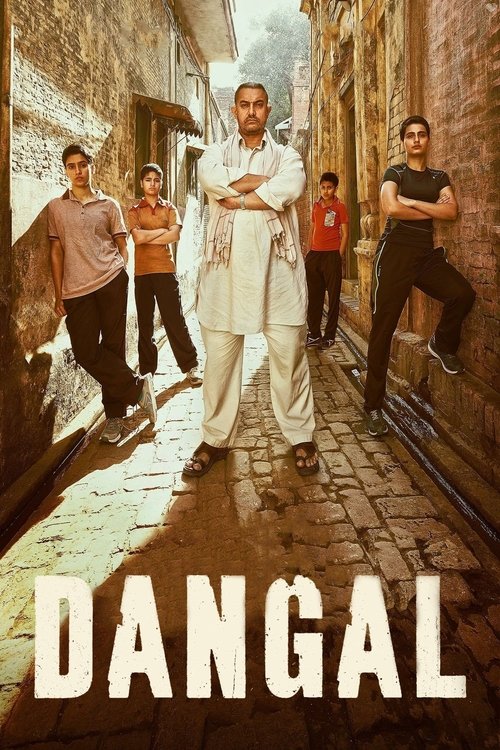
Title: Dangal
Year: 2016
Director: Nitesh Tiwari
Writer: Nitesh Tiwari
Cast: Aamir Khan (Mahavir Singh Phogat),
Fatima Sana Shaikh (Geeta Phogat),
Sanya Malhotra (Babita Kumari),
Zaira Wasim (Young Geeta),
Suhani Bhatnagar (Young Babita),
Runtime: 161 min.
Synopsis: Dangal is an extraordinary true story based on the life of Mahavir Singh and his two daughters, Geeta and Babita Phogat. The film traces the inspirational journey of a father who trains his daughters to become world class wrestlers.
Rating: 7.887/10
Wrestling with Destiny: The Unyielding Spirit of Dangal
/10
Posted on July 24, 2025
Aamir Khan’s Dangal (2016), directed by Nitesh Tiwari, is a cinematic triumph that transcends its sports biopic framework to explore the delicate interplay of personal ambition and societal defiance. Based on the true story of Mahavir Singh Phogat, a former wrestler who trains his daughters to become world-class champions, the film is a masterclass in storytelling that balances raw emotional depth with cultural critique. Tiwari’s direction is meticulous, weaving a narrative that feels both intimate and universal, without succumbing to melodrama or caricature. The screenplay, co-written by Tiwari, Piyush Gupta, Shreyas Jain, and Nikhil Mehrotra, is a standout, deftly navigating the complexities of gender expectations in rural India while maintaining a taut, character-driven focus. It avoids preaching, instead letting the characters’ actions particularly Mahavir’s unrelenting belief in his daughters speak to the broader struggle against patriarchal norms.
The performances are the film’s heartbeat. Aamir Khan, as Mahavir, delivers a portrayal that is both stoic and vulnerable, capturing the weight of a man wrestling with his own unfulfilled dreams while shouldering societal scorn. Yet, it’s the younger actors Fatima Sana Shaikh and Sanya Malhotra as the adult Geeta and Babita Phogat who steal the frame. Their evolution from reluctant trainees to fierce competitors is portrayed with such authenticity that their victories feel visceral. The wrestling sequences, choreographed with gritty realism, are a testament to cinematographer Setu’s ability to capture the sport’s physicality without losing sight of its emotional stakes. The camera work is dynamic yet unobtrusive, using tight close-ups and sweeping pans to mirror the intensity of the ring and the vastness of the Phogats’ ambitions.
If Dangal falters, it’s in its occasional reliance on familiar sports-movie tropes, particularly in the climactic match where narrative predictability creeps in. The music, composed by Pritam, while emotionally resonant, sometimes leans too heavily on swelling strings, risking overwrought sentimentality. These are minor quibbles, however, in a film that so confidently balances cultural specificity with universal themes. Set in the dusty, sunbaked landscapes of Haryana, the location becomes a character in itself, grounding the story in a palpable sense of place. Dangal is not merely a tale of athletic triumph but a profound meditation on legacy, resilience, and the courage to redefine what’s possible.
0
0
